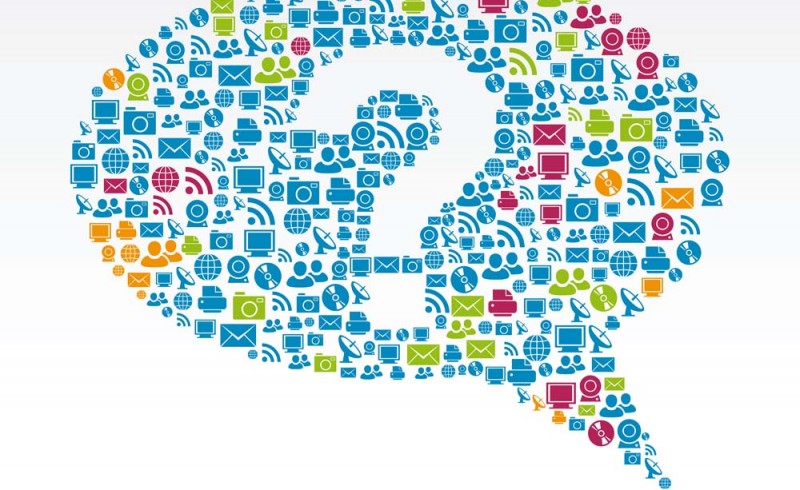
Is it okay to ask somebody about their mental illness? Is it okay to talk about your own mental illness? Nobody really knows; those guidelines are not in place. So many people just hold it all inside. Those with a mental illness don’t want to be judged, and those without a mental illness are afraid to say the wrong thing. It’s like a junior high school dance where both the girls and boys are standing against the wall with no idea what to do.
Even though I was diagnosed with bipolar disorder 21 years ago, I am constantly learning new terms and ways to speak about it. For example, I only just recently found out that I should say, “I am living with bipolar disorder” rather than “I’m bipolar.” I guess that makes sense since it really is a condition and not who you are. I mean, you wouldn’t say, “I am diabetes.” Well, maybe if you really liked having diabetes you could say that.
And before I go any further on this topic, I must put out the disclaimer that I do not speak for all people living with a mental illness. These are my opinions based on my years of experience. It’s not like we go to a convention and all decide together how we should talk about mental illness. Now that I think about it, maybe we should do that. That would be one interesting convention!
Anyway, if we as a society are going to improve how we discuss and address mental illness, both those who live with a mental illness and those that don’t could improve the way they talk about it. So, I’ll be the first to extend the invitation to dance. For those of us with a mental illness, it’s important that we can be honest about our condition when we’re ready. It’s taken me years to finally be able to talk about my experience. And that’s okay. I wanted to be in a stable place to help me understand it better, but now I’m ready to share. However, I think it benefits me not to talk about it too much. As I mentioned earlier, it’s not who I am. I don’t want “bipolar” to be my identity. If someone asks about the illness, I’m happy to explain my condition and its challenges. I am honest, but not overwhelming.
There are also a couple of ways those who don’t have an illness can improve their communication. I highly recommend starting a conversation when you are alone, one on one with someone, not in a group setting. I would start by asking simple questions. If you know someone has a mental illness, you could say something like, “Do you mind if I ask you about your condition?” Again, I can’t speak for others, but I really appreciate it when people just ask. Get it out in the open. And even though some people with mental illness may not want to talk about it, they will appreciate that you’re concerned about it, interested in them and that they can talk about it with you if they want. Once the topic is part of your conversation, don’t try and fix or diagnose your friend or relative or give her advice. Opinions or personal anecdotes about your friend’s aunt who was a hoarder or your cousin who cured his depression with hemp oil aren’t helpful. It’s best to be general and say things like, “Just know if you ever need to talk or need support, I’m here” or “thank you for sharing, I am so glad you felt comfortable talking about what you are going through” or “that is wonderful that you are getting the treatment that you need.”
The bottom line is that we can be open about mental illness, but as we humans are still trying to understand the condition, we should be conscious that we approach the topic with compassion and not judgment. It is possible that you might sometimes say the wrong thing or accidentally offend someone, but that is part of life. We learn from our mistakes. The important thing is that we keep trying to talk about it so that people are supported and encouraged to get help if they need it. We should get closer together and not farther apart. So ask that question—ask that person to dance. She might say no, but she might say yes. It could start out awkward like a junior high school boy and girl slow dancing, at arm’s length apart, rocking back and forth to the beat of the Boys to Men Song, End of the Road. However, it could turn into an interesting moment of understanding that will create supportive communities that help bring out the best in each other!
To learn more about my adventures with mental illness, check out my new book, Chocolate Pudding in Heaven; The Intriguing Journey of My Bipolar Mind. Stay tuned for my next blog post and follow me on Twitter and like me on Facebook.
To all my fellow brothers and sisters living with a mental illness, what is the best way to talk to you about your mental illness if you are ready?
Let me know in the comments so I can write more of these articles!
Maggie Newcomb Raine is Speaker, Comedian, Writer, and Mental Health Advocate.
She advocates for mental illness acceptance and mental health recovery through her speaking presentations, blog and book, Chocolate Pudding in Heaven (available on Amazon, iBooks, Barnes & Noble, and Smashwords).